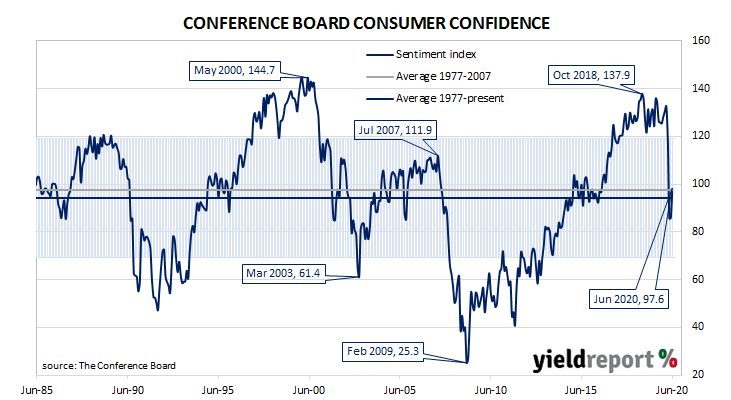Summary: US consumer confidence back to long term average; views of present, future conditions improve significantly; recent surge in new coronavirus cases not within survey period.
US consumer confidence collapsed in late 2007 as the US housing bubble burst and the US economy went into recession. By 2016, it had clawed its way back to neutral and then went from strength to strength until late 2018. Measures of consumer confidence then oscillated within a fairly narrow band at historically high levels until they fell noticeably in March and then collapsed in April.
The latest Conference Board survey held during the first half of June indicated US consumer confidence has recovered back to the long-term average after a relatively short-lived plunge in April and May. June’s Consumer Confidence Index registered 98.1, well above the median consensus figure of 91.5 and significantly above May’s final figure of 85.9. Consumers’ views of present and future conditions improved considerably from those held at the time of the May survey.
“The re-opening of the economy and relative improvement in unemployment claims helped improve consumers’ assessment of current conditions but the Present Situation Index suggests that economic conditions remain weak,” said Lynn Franco, a senior director at the Conference Board.
Longer-term US Treasury bond yields increased while yields at the short end eased. By the end of the day, the yield on 2-year Treasury bonds had lost 2bps to 0.14% while 10-year and 20-year yields had each gained 3bps to 0.65% and 1.41% respectively.
However, some economists were quick to point out a reversal may be in store. “The cut-off date for the survey was 18 June, so it didn’t capture the recent surge in new coronavirus cases. Retracement is clearly possible,” said ANZ senior economist Catherine Birch.

